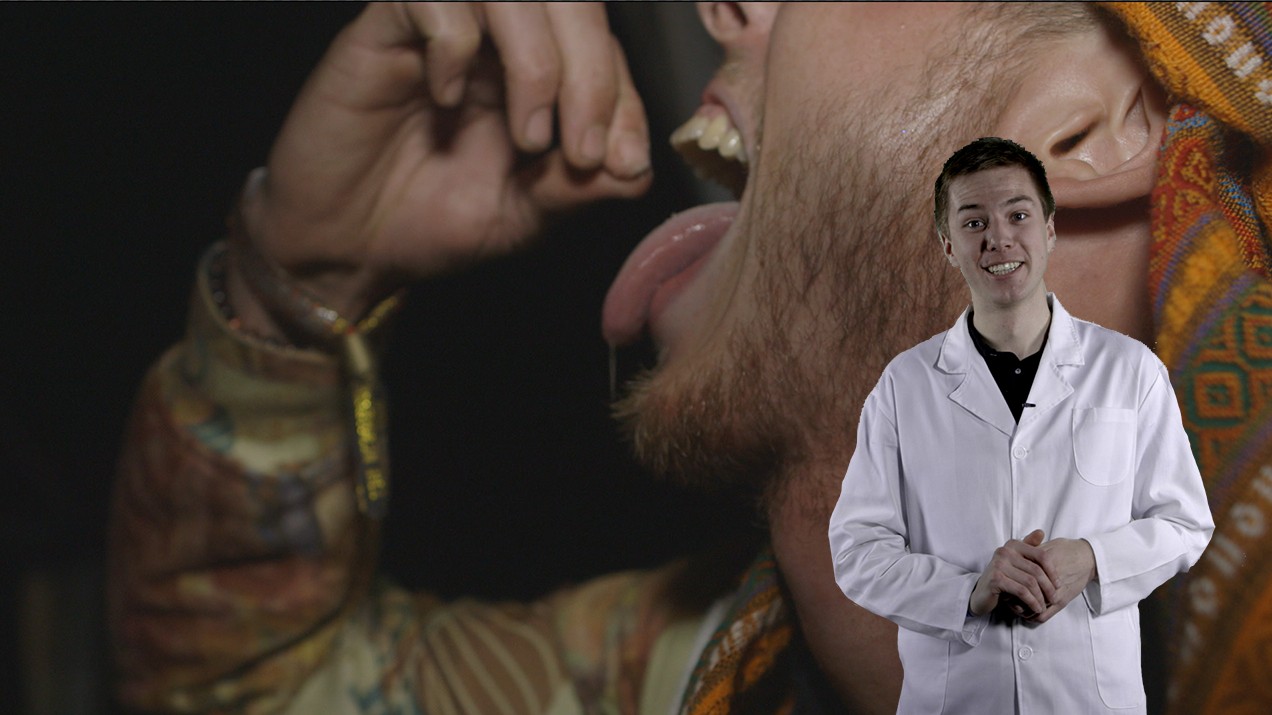Annie Eagle/Alamy
When Steve Cox was 18, his life changed forever. He’d just won a sports scholarship to an American university, and his dream of becoming a professional tennis player seemed likely. His dad, Mark Cox, was a successful tennis player already, and chuffed that Steve was following in his footsteps. But during a university-mandated specialist heart screening, Steve's doctors discovered he had arrhythmogenic right ventricular cardiomyopathy (ARVC), an accumulation of fat in the heart that disturbs the electrical current, which meant he would have to give up the sport forever. Playing tennis could literally kill him at any moment.Twelve young people die due to undiagnosed cardiac conditions in the UK each week (some cardiologists think that number may be up to 25 percent higher), and the scariest part is that very few of them see it coming; in 80 percent of young sudden cardiac deaths (SDCs) there are no prior signs or symptoms. After suicide and road traffic accidents, cardiac arrest is one of the biggest killers of 14 to 35-year-olds in the UK. Many of us think we’re invincible, but inside our bodies there could be a ticking time bomb waiting to go off, and something as common as playing sports or taking drugs could be the event to trigger it.After Steve’s story made headlines back in the 1990s – it got a lot of press because of Mark’s fame – families started sending Steve’s mother, Alison, letters. Strangers were outpouring their grief for loved ones who'd died prematurely because they hadn't had a test like the one Steve had. Known as an ECG, which is short for "electrocardiogram", it tests your heart's rhythm and electrical activity, and had been made mandatory for sportspeople at Steve's university since an athlete had died from sudden cardiac arrest a few years earlier.Alison, a counsellor, was overwhelmed after hearing about this epidemic of sudden deaths, so decided to set up "CRY" – Cardiac Risk in the Young – a charity that deals with bereavements caused by heart conditions. It also offers heart screenings to young people, funds research, supports those who do have a rare heart condition like Steve’s, and now lobbies the UK government to try to do something to stop all of these sudden deaths from happening. Steve, now a qualified doctor, is the Chief Executive.
WATCH:
I tell him that I find this to be the most worrying part – that it can be so random and out of the blue. Steve agrees. All those forms you fill out in your lifetime asking if you have a heart condition, the chances are you might not know, he says. "Passing out during exercise, falling and not putting your hands out, or experiencing extreme chest pains, those are classed as red flags that you might have a cardiac condition," he says. "And if there has been a family history of young sudden cardiac death, then the whole family should be referred for tests because these conditions are often genetic."Steve says that, quite often, unexplained deaths might be down to a cardiac arrest – when a young person drowns, for example, it might be an accident that happened after the cardiac arrest. Equally, when a young person collapses after taking drugs or around drugs, police might assume they had an overdose, but even small amounts of drugs could trigger a pre-existing heart condition. "People just jump to conclusions – it can be very upsetting for families," says Steve.Paula Beck, a personal trainer from Epsom, only found out that she had a heart condition called Brugada Syndrome after her brother Craig died out of the blue. At first, medics thought he’d taken drugs, but it was proved he had none in his system. He was 31, fit, healthy, worked out a lot, was a young father of two and lived in Australia at the time. "My brother, he fainted a month before, went to the doctors in Australia they never gave him an ECG," says Paula. "The day he died he was just sitting on his bed chatting to his friends, and fell to the floor, frothing at the mouth, struggling to breath. By the time ambulance got there it was too late."Paula had fainted a couple of times in the past, but had just put it down to the fact she’d lost blood on one occasion and was pregnant on the other. The tragedy of her brother’s death motivated her to go to the hospital to get an ECG, which did not identify that she had the condition that killed him. She then had an ajmaline test, where doctors put drugs in your body to put your heart under pressure and see how it performs. Shortly after, she, her sister, her mother and father were all diagnosed with Brugada.Paula, a personal trainer, decided to get an ICD fitted, which is a box-like pacemaker that is surgically inserted under your skin. "If your heart was to go out of rhythm it shocks it back in seconds, much quicker than, say, if you were in an exercise class and had a cardiac arrest and had to wait for first aid or an ambulance," she explains.The operation was not a total success: Paula was offered either anaesthetic or sedation and opted for the latter, but it didn’t work, so she was awake for the part at the end where they shock your heart to test it. "It was like a living nightmare," she recalls. At one point her whole body jumped from the bed. Suffice to say, she now recommends people opt for anaesthetic.Soon, Paula will get her two kids tested. Steve believes that testing needs to be more widespread in the UK because, as it stands, people are waiting for a family bereavement or a cardiac arrest rather than preventing such an event in the first place. "One in 300 people in the general population will have an underlying cardiac abnormality which can be potentially life-threatening," he says. "If a cardiac arrest occurs, you can do CPR or use a local automated external defibrillator [an AED, which effectively shocks the heart back to life], but after a person collapses, every minute that passes before you start CPR or use an AED decreases their chance of living by 10 percent."CRY is therefore trying to develop an infrastructure for ECG testing in the UK, looking out for 10 of the most common conditions in those they test. In sports, Steve would like to see testing at a more grassroots level: "Fourteen-year-old sports players coming through would only later find out they should have an ECG at the point of signing with a club. In Italy, for example, regulation is tighter, and you're not allowed to be part of a football team, even if it’s just a bit of fun on a Saturday morning, unless you’ve had an ECG."The NHS is overstretched, and ECGs are expensive and require cardiac specialists, but CRY have found that tests save lives. "We have a National Screening Committee in the UK who oversee all screening, but it’s also challenging for them to implement nationwide screening," says Steve. "There's research the government would like to see that would show the value of the screenings, but the research isn't feasible anymore. It relied on randomised controlled studies, where you identify someone with the condition, don't tell them they have the condition and let them live a normal life. It’s unethical – we couldn’t do that, because we’d need to treat people identified with the condition." Steve hopes to see a more positive view of the importance of screening young people from the NHS next time it comes up for review."When I first got diagnosed, my friends had never heard of Brugada, I had never heard of it and even doctors didn’t know about my particular condition," says Paula."These deaths are often not spoken or known about – but they're starting to be," Steve concurs, explaining that, on top of testing, we need to have open conversations about cardiac illness so young people are aware of the few symptoms there are, and are able to get in touch with CRY to get tested if they experience any of them, before it's too late.@millyabraham
Advertisement
Advertisement
"When we talk about cardiac arrests in young people there's often focus on sport, because athletes are more well known or because it’s televised," Steve explains when I speak to him over the phone. He gives the example of Fabrice Muamba, the 23-year-old former Bolton Wanderers player who collapsed during a match in 2012. "Thousands of people in the audience saw that event, and it’s true that while normal exercise like walking or light jogging is good for everyone, extreme competitive exercise – pushing your heart to the limit day in, day out – is tempting fate if you have an underlying condition."While strenuous sport wouldn't cause a cardiac arrest, it could trigger one, increasing the risk of some heart conditions up to four-fold. However, Steve tells me that the majority of cardiac arrests happen in a relaxed environment, or even during sleep: "They happen to people who are not elite athletes: normal, fit people. They can be triggered by prescription drugs like antibiotics or anti-malaria tablets, or drugs that increase your heart rate, like cocaine. Or they can just happen without a trigger.""They can happen to normal fit people. They can be triggered by prescription drugs like antibiotics or anti-malaria tablets, or drugs that increase your heart rate, like cocaine. Or they can just happen without a trigger."
WATCH:

I tell him that I find this to be the most worrying part – that it can be so random and out of the blue. Steve agrees. All those forms you fill out in your lifetime asking if you have a heart condition, the chances are you might not know, he says. "Passing out during exercise, falling and not putting your hands out, or experiencing extreme chest pains, those are classed as red flags that you might have a cardiac condition," he says. "And if there has been a family history of young sudden cardiac death, then the whole family should be referred for tests because these conditions are often genetic."
Advertisement
Advertisement
